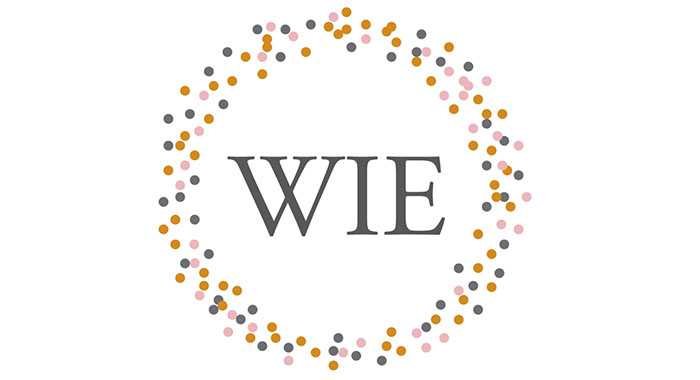
Some of film and television’s finest female talent descended on the Arclight on Thursday, November 10, for the 2016 Women in Entertainment Summit. Facing an audience of women of all ages and races, the experienced professionals tackled panel topics including “Inclusivity,” “Building Your Toolkit for Success,” “Gender & Sexuality,” “Engineering Your Own Path,” and (of course) “Solving Hollywood’s Diversity Problem” among others.
Here are just a few of the tips and words of wisdom and encouragement from some luminaries in the industry:
“Don’t wait for the ‘yes’ — just go out and do it.”
– former director for the LA Film Festival and film producer Stephanie Allain (Hustle & Flow, Dear White People) described one of the first lessons she learned while championing John Singleton’s film Boyz n the Hood as an executive at Columbia Pictures.
Gender & Sexuality with @RESEWON @DaisyRockGuitar @lindaong100 @Outfest @WDITogether @EVOXTelevision #ArcLightWomen #WIE2016 pic.twitter.com/hO8QtyjueJ
— ArcLight Cinemas (@ArcLightCinemas) November 10, 2016
“Everybody has their own path.”
– Karen Bailey, senior vice president of Original Programming at Starz, reminded women in the entertainment industry, but also exhorted them to come prepared, be open, be flexible, and be tireless and “don’t make excuses.”
“We’re still looking at: 17 percent of people directing TV are female, 26 percent of people writing television are women/female, and 22 percent of showrunners. It’s a time where we have all these great shows happening and yet the numbers not really moving. One reason for that is that the pie has generally gotten bigger — there’s a lot more shows on the air in general. And that means that even though the numbers of women directing, writing, and creating have increased, the percentages aren’t going up overall.”
– Kirsten Schaffer, executive director, Women in Film, noted that though now is — like the title of the panel she moderated — “The Golden Age of Women and Television” with opportunities on shows delivered via broadcast, cable, over the top, and streaming, representation still barely rises half a percentage point a year.
“I had the gift of getting to learn from masters.”
– Jessica Sharzer, co-executive producer of upcoming Fox TV movie Star, said of her first staff position, which was on American Horror Story and for which she is writer and co-executive producer.
Producer Bruna Papandrea on #diversity #ageism @ArcLightCinemas @WIEntertainment #ifshecanseeitshecanbeit pic.twitter.com/Vp9yoHrfOT
— Geena Davis Institute (@GeenaDavisOrg) November 10, 2016
“One of the greatest gifts we’ve had is streaming content.”
– GLAAD President and CEO Sarah Kate Ellis expressed concern about how traditional broadcast and cable outlets lag behind streamers like Netflix and Amazon in telling diverse stories, noting the 25 deaths of lesbian or queer female characters in 2016 — a TV trope called “Bury Your Gays,” which is “a decades-long trend of killing LGBTQ characters – often solely to further a straight, cisgender character’s plotline,” according to GLAAD’s annual “Where Are We on TV” report.
“One of our initiatives today — or for Women in Entertainment period — is how do we take steps, even if they are tiny, tiny things. With the movie industry — one way we focus on that is vote with your dollars: If you support women films, and you’re going to see films that are made by women, have a woman protagonist, it matters.”
– Gretchen McCourt, ArcLight executive vice president and co-founder of Women in Entertainment.
❤️ "Do you want to get fired for the movie u want to make or get fired for the movie they want to make?" Dir Jennifer Yuh Nelson #WIE2016
— Ania Woj (@Ania_Woj11) November 10, 2016
“I started out as a high school journalism teacher, so I was a yearbook advisor, so I spent, you know, thousands of hours after school. And you become invisible to teenage girls, and they just start talking, and they don’t know you’re there anymore.”
– Rob Thomas, Veronica Mars creator and iZombie executive producer, described how he learned to write young women so well, as well as noting some of the advancements in diversity he’s witnessed over the years — including growing encouragement from networks to hire female writers and directors.
The day continues @WIEntertainment @BeersBetsy @ilenechaiken @RobThomas @WIF_LosAngeles pic.twitter.com/wUeTXoY5VW
— Gretchen McCourt (@gdmccourt) November 10, 2016
“It’s not a fucking year, you guys.”
– Betsy Beers, producer and executive producer for Shondaland, bemoaned the “Year of” cliché (for instance, the so-called “Year of the Woman” or “Year of Diversity” or “Year of Being Kind to Your Fellow Human Beings”).
“Storytelling in television is very powerful and has the potential to have a huge impact on culture. Some years ago, I used to say that writing in television and creating television was stealth activism, because I’ve always had an agenda. I don’t pretend that I don’t. My stories aren’t neutral. I have a point of view. I want to advocate them. It doesn’t mean I can’t represent characters that have a different point of view to me. And it doesn’t mean that I don’t want to speak to people that don’t share my politics. But I definitely have an agenda. And the thing that’s changed over the last couple of years, in my view, is that we no longer have to be quite so stealthy about it. I readily admit to you — and all of you and anybody that I talk to — that I have an agenda, and I want to promote it, and I want the shows I work on to be about something and that I want them to change the world and to change the culture in one way or another. And I’m not really interested in doing shows or working on shows that don’t move the culture in some way or change the game in some way.”
– Ilene Chaiken, executive producer and showrunner of Empire.
I was really proud of @RoyalPains_USA because the creative team was so inclusive. @ReshmaShetty #WIE2016 #arclightwomen pic.twitter.com/tTlQu1pZth
— Women In Entertainment (@WIEntertainment) November 11, 2016